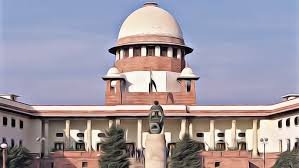The proceedings originated from a Transfer Petition (Criminal) No. 613 of 2025, which sought to transfer Criminal Petition No. 4162 of 2020 from the High Court of Telangana to the High Court of Judicature at Bombay, Nagpur Bench. The primary ground for this transfer was a “serious apprehension of partiality and procedural discrimination” due to the conduct of a learned Single Judge of the High Court of Telangana, who was hearing the matter. Further averments in the transfer petition claimed that the counsel for the petitioner (Respondent No.1) was summarily curtailed, given only five minutes to argue, and believed justice would be derailed due to the political status of Respondent No.1 and executive control.
The transfer petition was dismissed on July 29, 2025, because of “scandalous and scurrilous remarks” made against the High Court Judge. Consequently, a suo moto contempt petition was initiated against N. Peddi Raju and others, including Mr. Ritesh Patil (Advocate-on-Record) and Mr. Nitin Meshram (learned counsel), who filed and drew the scandalous petition. All the three alleged contemnors filled apology.
Upholding the Bar’s Integrity: Duties and Delimitations
The Court emphasized several critical aspects of legal professional conduct and judicial independence:
Contempt of Court: It is clear that counsel should not sign applications or pleadings containing matter that scandalizes the Court without prima facie adequate grounds. Such actions are considered guilty of contempt of Court.
Counsel’s Paramount Duty: While counsel has a duty to their client, their duty to the Court prevails. They are officers of the Court and must uphold its dignity and professionalism.
Professional Ethics: Counsel has a duty to advise clients to refrain from making false or scandalous allegations. They must not mislead the Court, cast baseless aspersions, or withhold relevant information. Their conduct should maintain professional ethics and integrity, ensuring their actions are in consonance with professional duties.
Judicial Independence: The Court noted a concerning trend of lawyers criticizing High Court and Trial Court Judges, especially when a political figure is involved. Such practices, which aim to transfer proceedings from one state to another to avoid a particular state’s court, cannot be countenanced. High Court Judges are Constitutional functionaries, enjoying immunity, and scandalous allegations against them undermine the very institution of justice.
Beyond the Apology: A Scrutiny of Intent and Judicial Independence
The Court’s reasoning highlighted several key points:
The transfer petition was dismissed because of the “scandalous and scurrilous remarks” directed at the High Court Judge.
The Court found that the conduct of the counsel, which led to the scandalizing remarks, was based on a “clear and emphatic pronouncement”.
Despite accepting that the conduct “could have been done under a misconception” as suggested by the lawyers’ apology, the Court noted that the tendered apology was specifically “tendered only to this Court”.
The Supreme Court found it more appropriate that the apology should be tendered before the learned Judge of the High Court whom they had scandalized.
The Court referenced a similar case, N. Eswaranathan v. State represented by the Deputy Superintendent of Police, where an apology from lawyers was accepted, reiterating that the Court takes no pleasure in penalizing lawyers for such actions.
A Second Chance: Directing Apology and Upholding Dignity
The Supreme Court’s holding was as follows:
The Court permitted the alleged contemnors to tender an unconditional apology before the learned Judge of the High Court of Telangana.
Given that Criminal Petition No. 4162 of 2020 had already been disposed of, the Registrar General of the High Court was directed to reopen the matter solely for the limited purpose of tendering this unconditional apology.
The respondents are required to tender their apology before the learned Judge of the High Court within one week of the matter’s reopening.
The learned Judge of the High Court will then decide on the acceptance of the apology within one week.
The parties are granted liberty to file an affidavit of apology via email or any other permissible mode before the High Court.
The learned Single Judge may also consider allowing the parties to appear through video conference.
N. Peddi Raju and Others
Supreme Court: 2025 INSC 989 (DoJ 11-08-2025)






